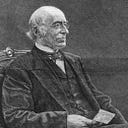Would-Be Censors Peddle Yet Another Election Meddle
In early September, the US Department of Justice announced criminal charges against two employees of RT (formerly Russia Today), alleging that the state media outlet “orchestrated a massive scheme to influence the American public by secretly planting and financing a content creation company on U.S. soil.”
Separately, DOJ announced its theft (“seizure”) of 32 Internet domains supposedly used to “covertly spread Russian government propaganda with the aim of reducing international support for Ukraine, bolstering pro-Russian policies and interests, and influencing voters in U.S. and foreign elections, including the U.S. 2024 Presidential Election. “
The victims, per US Attorney Damian Williams? “[T]he American people, who received Russian messaging without knowing it.”
US Attorney General Merrick B. Garland weighed in as well: “The Justice Department will not tolerate attempts by an authoritarian regime to exploit our country’s free exchange of ideas in order to covertly further its own propaganda efforts.”
Oh, really?
Garland, once nominated to serve on the US Supreme Court, surely knows better. There is no “unless the ideas originate with parties I happen to dislike, or include content I disagree with” exception to the First Amendment’s free speech and free press guarantees.
DOJ doesn’t even enjoy the fig leaf of an “in extremis” excuse, such as a state of war existing between the US and Russia or an imminent threat of attack which the indictments and domain thefts might have thwarted.
Does the Russian regime “meddle” in US elections? Of course it does. All powerful regimes meddle in other countries’ elections.
The US regime has a long record of doing so, up to and including sponsoring coup attempts when other countries’ elections don’t go its preferred way.
Even smaller regimes get in on the election meddling game. The Israeli regime, acting through unregistered foreign agents, has openly and unashamedly meddled in US elections for decades, and to the tune of more than $100 million this year alone.
It’s not the Russian regime that Merrick Garland and friends mistrust. It’s you, the American voter.
Part of that mistrust may be simple paternalism: You’re too naive, perhaps too stupid, to sort matters out for yourself. If anyone not aligned with Merrick Garland and friends is permitted to talk to you, they’ll fill your head with nonsense and you’ll vote “the wrong way” in November.
Another part of it is raw, undalderated fear: If you hear things that might be true but that don’t line up with the goals, purposes, and desires of the US regime, you might make up your mind for yourself instead of just doing as you’re told.
The “Russian election interference” narrative is now into its third consecutive presidential election cycle. It slices! It dices! It juliennes!
It was Hillary Clinton’s excuse for running a poor campaign in 2016.
It was the mainstream media’s excuse for burying disclosures from Hunter Biden’s laptop in 2020.
This year it provides cover for the bipartisan US military misadventure in Ukraine.
Garland and Co. fear your opinion … if it’s formed without censorship on their part.
Ask yourself why.
Thomas L. Knapp (Twitter:@thomaslknapp) is director and senior news analyst at the William Lloyd Garrison Center for Libertarian Advocacy Journalism (thegarrisoncenter.org). He lives and works in north central Florida.
Originally published at https://thegarrisoncenter.org on September 10, 2024.
